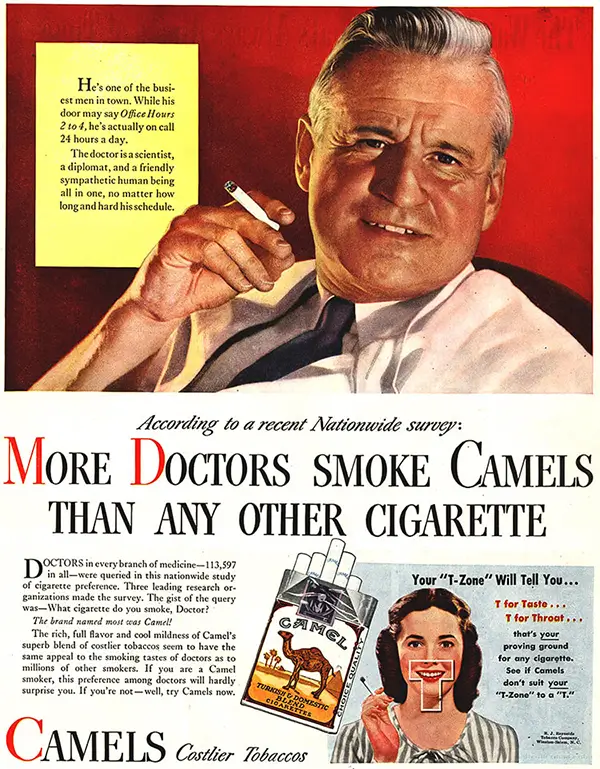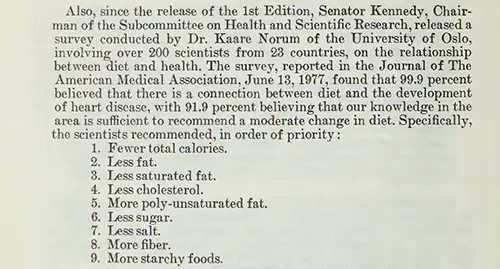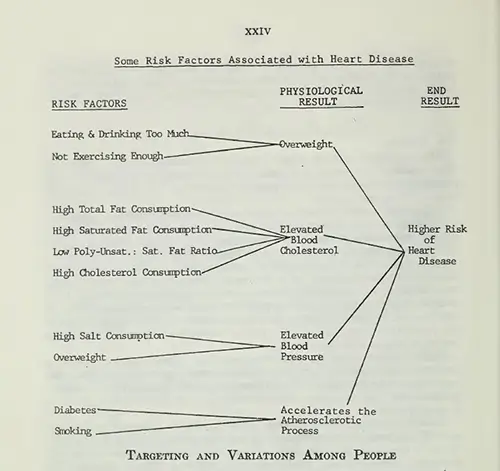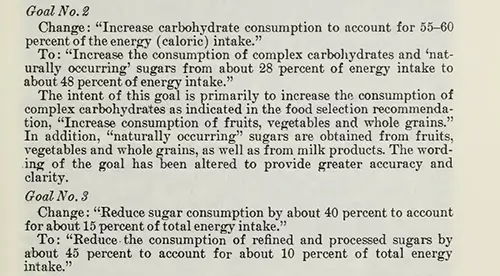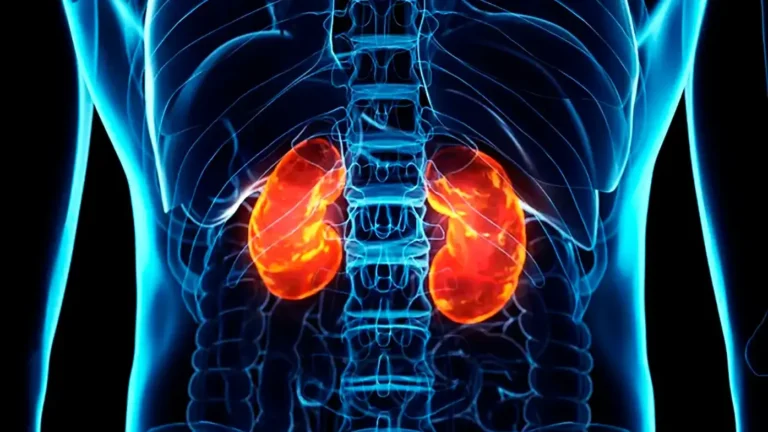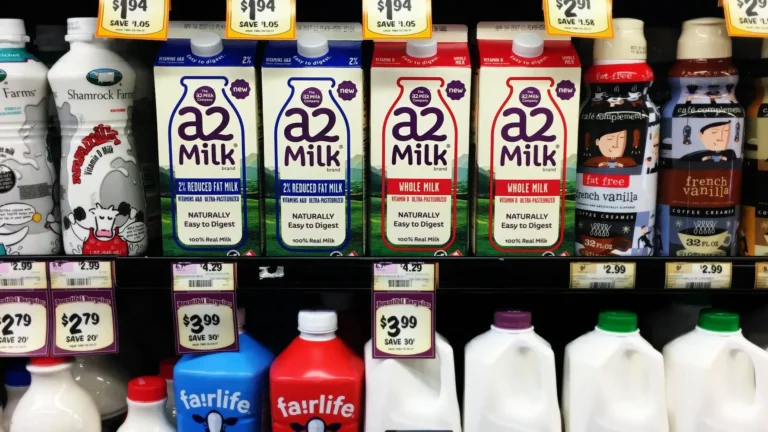The McGovern Report- Special Interest and The Suppression of Science
In 1977 the push for a change of Dietary Guidelines (McGovern Report) to more plant-based vegan one had been introduced to U.S. Congress.
Milos Pokimica
Written By: Milos Pokimica
Medically Reviewed by: Dr. Xiùying Wáng, M.D.
Updated June 9, 2023The battle for human lives and control and profit is real, but it is waged behind the scenes.
What most people are aware of is just propaganda. Doctors are good, they have to pledge a Hippocratic oath, there are there to heal you and help you, and of course one day medicine is going to deliver us from all diseases. In reality, it is completely opposite and sometimes completely in your face that it is pathetic.
For the majority of people that are not familiar with the history of nutritional science, this might come as a surprise that government itself has a network for suppressing the science and that individual men’s interest is not its primary goal. We can just remember the examples like “McGovern Report.”
In 1977 the “McGovern Report” came out. George McGovern was a former Democratic Senator from South Dakota who in 1972 suffered a presidential defeat to Richard Nixon, but he also was in the head of the committee that released the first Dietary Guidelines in the US. Before that, it was as it is now. Meat and sugar.
In 1977 most of the science you will find referenced in GoVeganWay articles was known to some extent. Even before that. Diseases of affluence like heart disease or cancer were beginning to skyrocket even at the beginning of the 20th century in the U.S. and some others developed countries. Meat consumption went up because personal wealth went up and people started to spend more on food. This will happen everywhere where the standard of living goes up. For example in rural China and India people mostly live on a starch-based vegan diet dominated by rice just because of poverty. But when those people move to cities to work in some newly constructed factory they will have more money to spend on food and this is exactly what happened in the U.S.
As a consequence diseases of affluence skyrocketed. After WW2 nutrition as science had begun to investigate this in a more professional and scientific manner. The research had been done and it took a couple of decades but the scientific consensus had been made.
The consensus was that it is not just saturated animal fat as believed in the 1950s or it was not just cholesterol it was an unnatural animal product-dominated diet as a whole. That type of diet was different from the starch-based vegan diet people eat just a hundred years ago. Scientific consensus at that time was and this is in the 1970s that humans as a species are primates and not true anatomical omnivores. The consensus was that government-backed by all of the nutritional research should change its animal product-dominated food pyramid model and that Dietary Guidelines should be more in line with human evolution. The report was made but even that report had to be “watered down”, but still. The push for changing the accepted Dietary Guidelines was made and introduced to Congress.
It was the McGovern Report.
What was so evil about this report? It basically stated that we should eat more whole grains, more fruits, more vegetables, less meat, less dairy, at least less whole-fat dairy, sugar, and so on. It still was a form of compromise and did not advocate a fully vegan diet, but it was a step in a similar direction. These new guidelines on eating were expected to have similar health-changing effects as the 1964 Surgeon General’s Report on Smoking.
This is a quote from the report itself:
“There is a great deal of evidence, and it continues to accumulate, which strongly implicates and, in some instances, proves that the major causes of death and disability in the United States are related to the diet we eat. I (Dr. Hegsted of Harvard School of Public Health) include coronary artery disease, which accounts for nearly half the deaths in the United States, several of the most important forms of cancer, hypertension, diabetes, and obesity as well as other chronic diseases.”
Industry and a big chunk of senators called report big conspiracy theory and that McGovern Committee believes in depriving people of what they like.
This was from an official record of the committee hearing, and later the same story was pushed in mainstream media. If you don’t believe conspiracy theories and watch mainstream media here is one example of the mindset of industry people.
At that time The Salt institute warned that:
“If people eat healthier, we would have more old people to take care of“…, “simultaneously increasing the cost of care of old people which comes under the category of healthcare expenditures.”
“Rulers” people don’t like old ones because they do not produce and just suck off the resources that rulers want for themselves. It is better for them and the economy when people die at 60 just before pension, and it is even better when they spend their entire savings on heart surgery and chemotherapy before they die. It would not be cost-effective for “rulers” to have masses of people regularly living to 90. This planet in their mindset is already overpopulated.
The other industries also went ballistic, especially meat and egg.
They warn that:
“If Dietary Goals are mowed forward and promoted as a present norm the entire sectors of the food industry –meat, dairy, sugar, and others may be so severely damaged that when it is realized that Dietary Goals are ill-advised, as surely will be the discovery, production recovery may be out of reach.”
However, the food industry did not stop this report. This report was eventually stopped at the highest political level. The level that sees people as a resource.
The full report, pdf: (download)
References:
Passages selected from a book: Pokimica, Milos. Go Vegan? Review of Science Part 2. Kindle ed., Amazon, 2018.
- “Diet Related to Killer Diseases, III : Hearings Before the Select Committee on Nutrition and Human Needs of the United States Senate, Ninety-fifth Congress, …” HathiTrust, babel.hathitrust.org/cgi/pt?id=uc1.a0000416073;view=1up;seq=1.
- Oppenheimer GM, Benrubi ID. McGovern’s Senate Select Committee on Nutrition and Human Needs versus the meat industry on the diet-heart question (1976-1977). Am J Public Health. 2014 Jan;104(1):59-69. doi: 10.2105/AJPH.2013.301464. Epub 2013 Nov 14. PMID: 24228658; PMCID: PMC3910043.
Related Posts
Do you have any questions about nutrition and health?
I would love to hear from you and answer them in my next post. I appreciate your input and opinion and I look forward to hearing from you soon. I also invite you to follow us on Facebook, Instagram, and Pinterest for more diet, nutrition, and health content. You can leave a comment there and connect with other health enthusiasts, share your tips and experiences, and get support and encouragement from our team and community.
I hope that this post was informative and enjoyable for you and that you are prepared to apply the insights you learned. If you found this post helpful, please share it with your friends and family who might also benefit from it. You never know who might need some guidance and support on their health journey.
– You Might Also Like –

Learn About Nutrition
Milos Pokimica is a doctor of natural medicine, clinical nutritionist, medical health and nutrition writer, and nutritional science advisor. Author of the book series Go Vegan? Review of Science, he also operates the natural health website GoVeganWay.com
Medical Disclaimer
GoVeganWay.com brings you reviews of the latest nutrition and health-related research. The information provided represents the personal opinion of the author and is not intended nor implied to be a substitute for professional medical advice, diagnosis, or treatment. The information provided is for informational purposes only and is not intended to serve as a substitute for the consultation, diagnosis, and/or medical treatment of a qualified physician or healthcare provider.NEVER DISREGARD PROFESSIONAL MEDICAL ADVICE OR DELAY SEEKING MEDICAL TREATMENT BECAUSE OF SOMETHING YOU HAVE READ ON OR ACCESSED THROUGH GoVeganWay.com
NEVER APPLY ANY LIFESTYLE CHANGES OR ANY CHANGES AT ALL AS A CONSEQUENCE OF SOMETHING YOU HAVE READ IN GoVeganWay.com BEFORE CONSULTING LICENCED MEDICAL PRACTITIONER.
In the event of a medical emergency, call a doctor or 911 immediately. GoVeganWay.com does not recommend or endorse any specific groups, organizations, tests, physicians, products, procedures, opinions, or other information that may be mentioned inside.
Editor Picks –
Milos Pokimica is a health and nutrition writer and nutritional science advisor. Author of the book series Go Vegan? Review of Science, he also operates the natural health website GoVeganWay.com
Latest Articles –
Top Health News — ScienceDaily
- Alzheimer’s may begin with a silent drop in brain blood flowon February 24, 2026
Subtle changes in brain blood flow and oxygen use are closely linked to hallmark signs of Alzheimer’s, including amyloid plaques and memory-related brain shrinkage. Simple, noninvasive scans may one day help spot risk earlier—by looking at the brain’s vascular health, not just its plaques.
- Scientists engineer bacteria to eat cancer tumors from the inside outon February 24, 2026
Researchers are engineering bacteria to invade tumors and consume them from the inside. Because tumor cores lack oxygen, they’re the perfect breeding ground for these microbes. The team added a genetic tweak that helps the bacteria survive longer near oxygen-exposed edges — but only once enough of them are present to trigger the change. It’s a carefully programmed biological attack that could one day offer a new way to destroy cancer.
- Massive US study finds higher cancer death rates near nuclear power plantson February 24, 2026
A sweeping nationwide study has found that U.S. counties located closer to operating nuclear power plants have higher cancer death rates than those farther away. Researchers analyzed data from every nuclear facility and all U.S. counties between 2000 and 2018, adjusting for income, education, smoking, obesity, environmental conditions, and access to health care. Even after accounting for those factors, cancer mortality was higher in communities nearer to nuclear plants, particularly among older […]
- Training harder could be rewiring your gut bacteriaon February 24, 2026
Training harder may do more than build muscle—it could transform your gut. Researchers found that intense workouts change the balance of bacteria and important compounds in athletes’ digestive systems. When training loads dropped, diet quality slipped and digestion slowed, triggering different microbial shifts. These hidden changes might influence performance in ways scientists are only beginning to understand.
- Scientists reverse muscle aging in mice and discover a surprising catchon February 24, 2026
A UCLA study in mice reveals that aging muscle stem cells accumulate a protein that slows repair but boosts survival. This protein, NDRG1, acts like a brake, preventing cells from activating quickly after injury. When researchers blocked it in older mice, muscle healing sped up dramatically — but stem cells became less resilient over time. The work suggests aging may reflect a survival trade-off rather than straightforward decline.
- Less sugar as a baby, fewer heart attacks as an adulton February 23, 2026
People whose sugar intake was restricted before birth and in early childhood had markedly lower rates of heart disease later in life. Compared to those never exposed to rationing, their risks of heart attack, stroke, heart failure, and cardiovascular death were cut by roughly 20–30%.
- Scientists create universal nasal spray vaccine that protects against COVID, flu, and pneumoniaon February 23, 2026
Scientists at Stanford Medicine have unveiled a bold new kind of “universal” vaccine that could one day protect against everything from COVID-19 and the flu to bacterial pneumonia and even common allergens. Instead of targeting a specific virus or bacterium, the nasal spray vaccine supercharges the lungs’ own immune defenses, keeping them on high alert for months. In mice, it slashed viral levels, prevented severe illness, and even blocked allergic reactions.
PubMed, #vegan-diet –
- Veganism: an extended theory of planned behavior framework incorporating ethical, environmental, and sociodemographic determinantson February 20, 2026
CONCLUSION: This study broadens the TPB by integrating ethical, normative, and psychosocial dimensions that explain vegan intentions beyond traditional predictors. Findings underscore the importance of moral identity, perceived social expectations, and contextual factors in shaping sustainable dietary behaviors.
- Association Between Diet and Metabolome in Childhood and Adolescence: A Systematic Reviewon February 11, 2026
CONCLUSION: This review identifies several metabolites consistently associated with specific dietary components across different studies in children and adolescents. These findings support the potential of metabolomics for validating dietary biomarkers and improving the accuracy of dietary assessment in pediatric populations. Although metabolomic markers reflect actual dietary intake, their implications for health outcomes remain to be explored.
- Growth Trajectories in Infants From Families With Plant-Based or Omnivorous Dietary Patternson February 5, 2026
CONCLUSIONS AND RELEVANCE: In this cohort study, infants from vegan households had growth patterns similar to those from omnivorous households, with a higher odds of early underweight that decreased by age 24 months. In the context of developed countries, these findings seem reassuring. Further research should examine vegan diet quality and the impact of nutritional counseling during pregnancy and infancy in supporting optimal infant development.
- Influences of vegan status on protein intake, lean body mass, and strength in lightly active, young women: A cross-sectional studyon February 5, 2026
CONCLUSION: These data suggest that functional indicators of body protein status may be adversely impacted by long-term adherence to vegan diets in young adult women.
- Iodineon January 1, 2006
Iodine is an essential trace nutrient for all infants that is a normal component of breastmilk. Infant requirements are estimated to be 15 mcg/kg daily in full-term infants and 30 mcg/kg daily in preterm infants.[1] Breastmilk iodine concentration correlates well with maternal urinary iodine concentration and may be a useful index of iodine sufficiency in infants under 2 years of age, but there is no clear agreement on a value that indicates iodine sufficiency, and may not correlate with […]
Random Posts –
Featured Posts –
Latest from PubMed, #plant-based diet –
- Differences in Protein Quantity and Quality Across a Spectrum of Plant-Based Meals: Analysis of a Large National Dietary Surveyby Sophie L van Oppenraaij on February 24, 2026
CONCLUSIONS: This study shows that only a small proportion of Dutch adults met both protein-related recommendations and sustainability goals, due to lower protein quantity and quality in more plant-based diets. This study emphasizes the need for professional guidance, especially in individuals with higher protein requirements, to facilitate a successful transition to a more plant-based diet.
- Dietary animal fat disrupts gut microbiota and aggravates Scl-cGVHD after allogeneic hematopoietic stem cell transferby Danielle D Millick on February 24, 2026
Allogeneic hematopoietic stem cell transplant (allo-HSCT) is an effective treatment for high-risk or relapsed acute leukemia. However, the frequent occurrence of graft-versus-host disease (GVHD) poses significant complications. Modifiable factors such as the gut microbiome and dietary regimen have the potential to influence the frequency and severity of GVHD. Previous studies in mouse models have shown a direct link between obesity and increased severity of GVHD; however, analysis of human […]
- Evaluation of biochemical, histopathological, hematological, and genotoxic effects of some indigenous weed plant extracts in albino rats toward a natural and safe alternative to synthetic insecticidesby Muhammad Asif Zahoor on February 23, 2026
CONCLUSION: These findings suggest that these weed plants have the potential to be used as biopesticides for future integrated pest management (IPM) programs.
- Comparative life cycle assessment of conventional dairy products and plant-based analog and hybrid alternatives: current status and future perspectivesby Muhammed Fidan on February 23, 2026
Conventional dairy products are associated with relatively high environmental burdens, largely driven by farm-level processes such as enteric methane emissions, feed production, and land use. These concerns have intensified interest in plant-based analog and hybrid dairy products as potential alternatives. However, environmental comparisons among these product categories remain inconsistent due to differences in functional units, methodological choices, and nutritional characteristics. This…
- Dietary Patterns and Indicators of Cognitive Functionby Hui Chen on February 23, 2026
CONCLUSIONS AND RELEVANCE: Results reveal that healthy diets, exemplified by the DASH diet for blood pressure control and diets with lower hyperinsulinemia and inflammation potentials, were associated with a lower SCD risk and better cognitive function. These findings underscore the importance of a healthy diet for maintaining long-term cognitive health.
- Adherence to the EAT-Lancet Planetary Health Diet during Pregnancy and Associations with Preterm Birth and Infant Size: a prospective analysis from the New Hampshire Birth Cohortby Leyre Notario Barandiaran on February 21, 2026
CONCLUSION: Originally proposed for chronic disease prevention and planetary sustainability, higher adherence to the PHD during pregnancy may also benefit birth outcomes, particularly lower odds of preterm birth.
